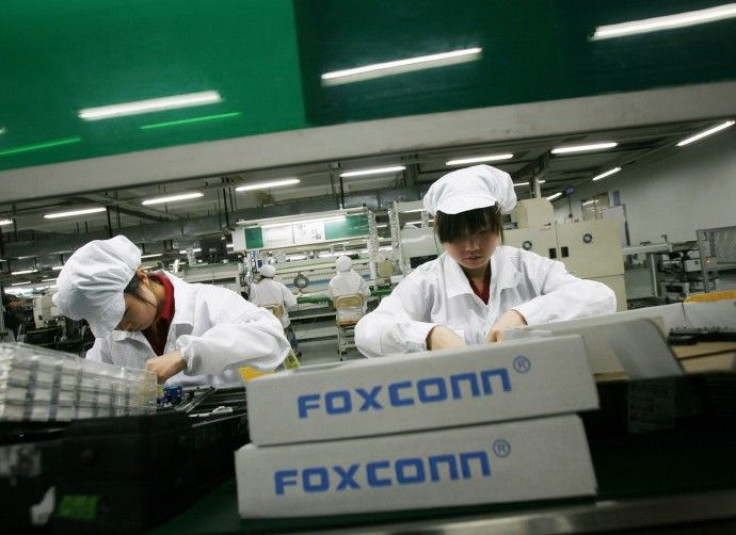Apple Partner Foxconn Adding One Million Robots; Rising Labor Costs Likely Prompt Move

Foxconn, the Taiwan-based manufacturer of Apple's iPhone and iPad that came under global scrutiny last year for a string of worker suicides, will rely more on robots for manufacturing in the coming years to reduce labor costs.
The company argues the advancement will yield better working conditions and more opportunities for its 1.2 million workers, but it could also mean fewer jobs.
Foxconn has been plagued by labor issues, including complaints of long hours, poor conditions and low pay.
Last year the company made headlines when some workers jumped off the building due to issues of overwork and low pay. There were 18 suicide attempts and 14 deaths. Foxconn responded with higher wages in some of the company's manufacturing areas, while also working to implement better management procedures in its factories.
Foxconn also installed anti-suicide nets around factories to discourage workers from jumping.
The company is closely watched because it makes Apple's popular, profitable, signature consumer products -- the iPhone and iPad. Some watchdog groups cried foul over Foxconn's labor conditions, but the company's challenge is meeting higher wage demands and better conditions for workers, while remaining price-competitive for Apple, and other companies it manufactures products for.
Apple said it wants better conditions for workers, and COO Tim Cook was sent to investigate the incidents last year. But Apple also wants its iPhones and iPads well made, and at low costs -- which is why the Cupertino, Calif. company outsourced manufacturing to China in the first place.
Now, Foxconn says the company will rely more on robots for manufacturing in the coming years, putting more resources in technology to reduce rising labor costs. Currently, Foxconn uses 10,000 robots, according to reports. But in the next three years, the company will use as many as one million robots -- likely reducing its workforce.
Foxconn is one of the world's largest electronics manufacturers. The company has more than one million employees, more based at manufacturing facilities in mainland China. In addition to making products for Apple, Foxconn also makes products for Sony, HP, and Nintendo.
Foxconn CEO Terry Gou talked of the company's plan to heavily invest in robots at remarks last week made at the company's campus in Shenzhen, China. Gou told Foxconn employees he wanted to move the company's workers "higher up the value chain, beyond basic manufacturing work," according to a company statement.
With the addition of one million or more manufacturing robots over the next three years, Foxconn says it can improve the overall working environment in manufacturing facilities and allow the company to create more sophisticated products.
"The use of automation is driven by Foxconn's desire to move workers from more routine tasks to more value-added propositions in manufacturing such as R&D, innovation and other areas that are equally important to the success of our operations," Foxconn said.
Chinese workers have been demanding higher wages as the nation emerged to become the world's second-largest economy in the past year. Many companies and factories have experienced worker strikes, as well as suicide cases.
"Rising salary costs should be the key reason why Foxconn is doing this," said C.K. Lu, a Taipei-based senior analyst at the research firm Gartner, in an interview with Reuters. "This year's wage increase has been quite significant and I don't expect the place to slow down next year."
© Copyright IBTimes 2024. All rights reserved.











